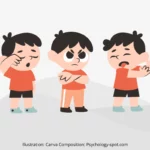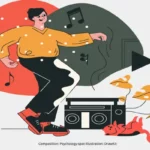
Numerous research has discovered that physical exercise is ideal for improving memory. In fact, it has also been shown to help us prevent some neurodegenerative diseases, such as Alzheimer’s. However, until now the mechanisms through which sport affects our brain were not known. Now research carried out at Harvard University reveals why physical activity enhances memory.
The key is in the sweat
A few years ago it was thought that neurons died and were no longer replaced, but recently it was discovered that in reality new neurons are reborn from time to time, although their replacement rate is much slower than that of the rest of the body’s cells.
Now, within the framework of studies on neurogenesis, it has been discovered that certain actions can stimulate the growth of new neurons in some areas of the brain, including the hippocampus. For those who don’t know, the hippocampus is an area of the brain that is closely linked to learning and memory. The curious thing is that this structure is particularly receptive to the growth of new neurons in response to resistance physical exercise. Why?
The answer was an enigma for neuroscientists, until recent research has discovered that the secret of physical exercise lies in the fact that it stimulates the production of a protein called FNDC5, which is released into the bloodstream when we start sweating. Over time (which is equivalent to constant exercise), BDNF5 stimulates the production of another protein known as “brain-derived neurotrophic factor,” which in turn stimulates synapses and the growth of new nerves, as well as to improve the survival of existing neurons.
What conclusions can we draw from this study?
That practicing resistance physical exercise, such as running, not only strengthens our muscles but also stimulates the growth of new neurons, especially in the hippocampal area, which means that it will improve our memory and ability to learn. If you don’t like running, brisk walking for at least an hour also has the same effect.
It is worth clarifying that due to the stimulating effects of coffee, it also improves memory since it stimulates the segregation of neurotrophic factor derived from the brain. And, to top it all off, for those who flatly refuse to play sports or can’t do it, I point out that a pill is already being synthesized that aims to simulate the effects of physical exercise. At the moment it has only been tested in mice but the results have been encouraging.
Reference:
Wrann, C. D. et. Al. (2013) Exercise Induces Hippocampal BDNF through a PGC-1α/FNDC5 Pathway. Cell Metabolism; 18(5): 649-659.




Leave a Reply